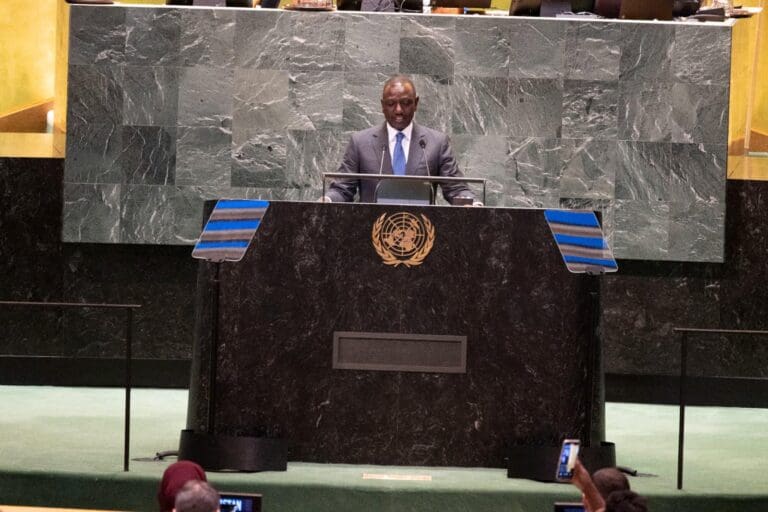President William Ruto has called for bold reforms at the United Nations Security Council to tackle the rapidly evolving global challenges.
The Kenyan leader said the current multilateralism system has proven inadequate in addressing crises such as climate change, inequality and debt, and continues to falter in providing any, let alone timely, solutions.
He pointed out that, without immediate action, humanity will face an unprecedented global crisis.
“Today, we have no choice but to reject outdated systems and re-imagine a framework of international cooperation that works for all 8 billion people,” he said.
President Ruto was speaking on Sunday during the Summit of the Future plenary at the United Nations General Assembly Hall in New York, United States.
He said there was a need to redesign the international financial system, strengthening partnerships for common security, bridging the digital divide and investing in human capacity.
He noted that it was unfortunate that only 17% of the United Nations Sustainable Development Goals (SDG) targets are on track largely due to unmet financial commitments.
“Developing countries, particularly in Africa and the Global South, are facing severe funding shortages, and the gap is widening,” he said.
Ruto explained it was time the historical injustice of Africa’s lack of permanent representation on the UN Security Council be addressed as a matter of justice in the ongoing UN reforms.
The Kenyan leader informed the General Assembly of the advancements made by the Kenya-led Multinational Support Mission in Haiti, saying that despite limited resources, the contingent has achieved tangible progress.
“What looked like mission impossible is now a present and real possibility for peace in Haiti,” he said.
President Ruto said Kenya is keen on increasing its forest cover to 30% in 2030 by planting 15 billion trees, an effort largely led by the youth.
“Two weeks ago, I launched ClimateWorX, a programme that will employ 200,000 young Kenyans in sustainable public works, focused on ecological restoration and infrastructure,” he said.
Earlier, during the Summit of the Future’s interactive dialogue session, President Ruto said there was a need to address structural and monetary issues that cripple multilateral financial institutions and disproportionately affect developing countries.
These, he said, will include limited fiscal capacity, rising debt, unfair credit ratings and uneven interest rates that threaten the realisation of SDGs.
“The fourth International Conference on Financing for Development in Spain next year might be our last chance to make significant reforms to meet the SDGs,” he said.
WN/as/APA


